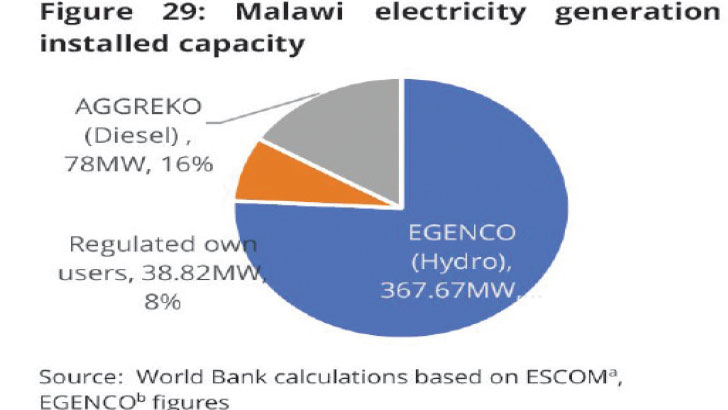Experts take on govt over IPPs failures
Energy experts have faulted government for its laxity to enforce timely implementation of the independent power producers (IPPs) projects, a situation they say is leading to increased electricity tarrifs in the country.
Energy expert Grain Malunga observed on Tuesday that the current electricity tariff is cost reflective based on the automatic tariff adjustment formula (Ataf) where any tarrif increase would benefit both Escom and IPPs.

Said Malunga: “We need to review the systems, to bring efficiency in energy production to help the private sector thrive and grow the economy”.
Senior lecturer at the electrical engineering department of the Polytechnic, a constituent college of the University of Malawi, Gregory Gamula, in a written response called for a different approach to activities in the energy sector.
He said as Malawi is now implementing the Malawi 2063 Vision there will be need to prioritise the energy sector not in talk only but in action and making available the required resources to accomplish targets that have been set.
Gamula said: “There is need for political will that supports development in the energy sector unlike suppositions that are aimed at gathering votes for particular figures that are running for political offices”.
Meanwhile, the Malawi Energy Regulatory Authority (Mera) said it is reviewing IPP contracts and their licences as majority of them have been sitting on their licences without rolling out their projects.
Mera consumer affairs and public relations manager Fitina Khonje indicated that only one IPP, Mulanje Hydro, is providing eight megawatts (MW) power to the national grid while JCM Power will be connected to the grid in two months to provide 60MW of power.
She said: “We are working on these reviews to come up with resolutions on how to treat situations before us.”
She admitted that since the 2018 base tariff adjustment, there has not been a movement in attracting more IPPs to the national grid; hence, the country is stuck with expensive power from Agrekko gensets up to now.
On Monday, Mera approved the increase of electricity tariff by 10.62 percent partly due to the use of diesel power generators by Agrekko whose running costs remain exorbitant at the cost of consumers.
Currently, only 18 percent of the country’s population has access to electricity, with 12 percent covered by the national grid while six percent is covered by solar mini grids.






One Comment